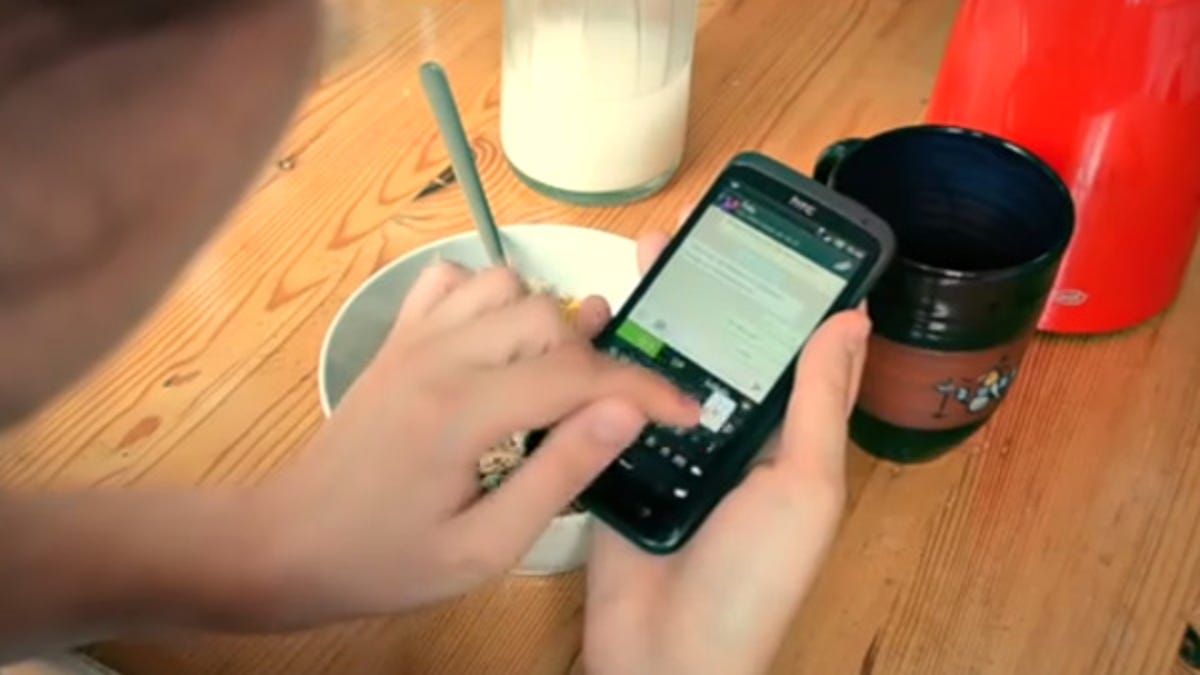Addicted to your smartphone? App can tell
New free Android app from the University of Bonn monitors your smartphone use to gauge if you've become dependent on your device.

The average smartphone user, according to market research firm Flurry, spends 2 hours and 38 minutes per day on their smartphone. We don't know how accurate this figure really is (it seems pretty excessive), but smartphone usage is on the rise.
But just how attached are we becoming to our phones, and what are we using them for? That's the focus of a new project by the University of Bonn in Germany.
A team of psychologists and computer scientists, led by Alexander Markowetz, a junior professor in computer science, studied the smartphone habits of 50 students for six weeks. Over that period, more than a quarter of the students used their phones for more than two hours a day, and checking their phones, on average, 80 times a day -- every 12 minutes. Mostly, they were using their phones for messaging, social networking, and playing games.
Now, the researchers want to open the study up, as well as help users discover their own smartphone statistics. They have developed a free Android app called Menthal that monitors your smartphone usage and delivers metrics.
It tells you how long you spend on the phone per day and which apps you use the most, as part of what the team hopes will become the most comprehensive and accurate study of smartphone usage to date. To this end, it will send daily anonymized results back to the team, by default only when you are connected to a Wi-Fi network.
But the app has another trick up its sleeve: measuring the progress and severity of mental illness such as depression. Based on a personality analysis, it will use your results to gauge your mood -- for example, if you spend a lot of time messaging, hanging out on Facebook and chatting with friends, this might be an indicator that you are feeling quite cheerful and gregarious, whereas fewer interactions could mean that you are feeling depressed and closed off from the world.
"We suspect that during a depressive phase, cell phone use will change in a measurable way," explained Professor Thomas Schläpfer, who is working with the team on this aspect of the project. "Patients will then make fewer phone calls and venture outside less frequently -- a change in behavior that smartphones can also record thanks to their built-in GPS." If this could be monitored -- with, of course, the patient's full permission and in compliance with data privacy laws -- it could help doctors administer early intervention.
The free app can be downloaded from the Google Play store or the Menthal Web site. Be warned, there is a waiting list for registration, so you may not be able to get started straight away.
(Via CNET Australia)

